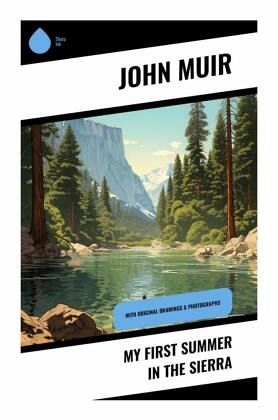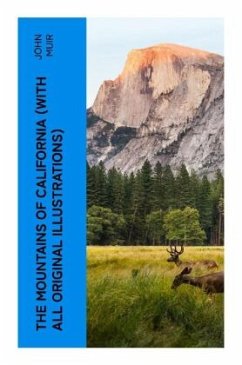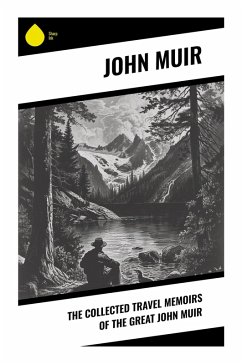
My First Summer in the Sierra
With Original Drawings & Photographs
Versandkostenfrei!
Versandfertig in 6-10 Tagen
9,90 €
inkl. MwSt.

PAYBACK Punkte
0 °P sammeln!
In "My First Summer in the Sierra," John Muir presents a vivid and lyrical account of his experiences while exploring the Sierra Nevada mountains in the summer of 1869. Muir's prose is rich with detailed observations of the natural world, reflecting the Romantic literary movement that emphasized a deep connection to nature and individual experience. The narrative intertwines personal reflection with scientific inquiry, as Muir meticulously documents the flora, fauna, and ecological dynamics of the region, all while expressing his profound reverence for the wilderness. This book not only serves...
In "My First Summer in the Sierra," John Muir presents a vivid and lyrical account of his experiences while exploring the Sierra Nevada mountains in the summer of 1869. Muir's prose is rich with detailed observations of the natural world, reflecting the Romantic literary movement that emphasized a deep connection to nature and individual experience. The narrative intertwines personal reflection with scientific inquiry, as Muir meticulously documents the flora, fauna, and ecological dynamics of the region, all while expressing his profound reverence for the wilderness. This book not only serves as an outdoor memoir but also as a foundational text in the American conservation movement, emphasizing the beauty and fragility of natural landscapes. John Muir, often referred to as the "Father of the National Parks," was a Scottish-American naturalist whose advocacy for the conservation of the American wilderness was deeply influenced by his own experiences in nature. His upbringing in arural setting and his profound love for the natural world drove him to explore and document the landscapes he treasured. Muir's work was instrumental in establishing national parks and protecting wild areas, as he believed that wilderness was vital for both the environment and humanity's spirit. "My First Summer in the Sierra" is not only a testament to Muir's exceptional sensitivity to nature but also an invitation for readers to reconnect with the wild spaces that invigorate the human spirit. This book is essential for those who wish to understand the foundations of environmentalism and appreciate the beauty of the Sierra Nevada through Muir's passionate lens.












